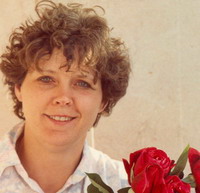Poll: What is your linguistic family background? Auteur du fil: ProZ.com Staff
|
|---|
| | Michael Harris 
Allemagne
Local time: 05:02
Membre (2006)
allemand vers anglais
and after goint to Swaziland as children, we (children, not our parents) started to learn Siswati and Afrikaans in school which were lost again after returning to Wales.
But now I speak fluent German and a bit of Hungarian, so it probably helped speaking different languages in my youth
| | | |
My entire family is monolingual. That said, it was my father teaching me some words of French that first got me interested in languages when I was very young. But I am the only one who is really fluent in two languages now.
| | | | Thayenga 
Allemagne
Local time: 05:02
Membre (2009)
anglais vers allemand
+ ...
Until I was 15 and started learning English. Not in school, thougha tht was and still is mandatory, but rather teaching myself American English which eventually got me my first job of nearly 20 years of employment.
In the same fashion I taught myself Spanish, supported by uncountable trips to Spain and the Canary Islands. Being away from the touristic hotspots, one has no choice but to learn the language.
... See more Until I was 15 and started learning English. Not in school, thougha tht was and still is mandatory, but rather teaching myself American English which eventually got me my first job of nearly 20 years of employment.
In the same fashion I taught myself Spanish, supported by uncountable trips to Spain and the Canary Islands. Being away from the touristic hotspots, one has no choice but to learn the language.
[Edited at 2010-10-04 11:14 GMT] ▲ Collapse
| | |
|
|
|
My mom is Quebecois. But, since we did not live really close to my Quebecois relatives, I never learned French very well.
Now I am fluent in Italian and speak Brazilian Portuguese very well, which I am sure has something to do with my contact with non-English speakers when I was young.
| | | |
My early childhood was spent speaking English in India. A grandmother spoke Urdu, which I took for granted when I was very tiny, but later the main background language was Marathi, which my parents spoke fluently. There was a good sprinkling of other languages, and fervent discussions about New Testament Greek (which my father taught). Visitors spoke different Indian languages and my parents managed those with varying success. Outside the house, they spoke Marathi most of the time. Small childre... See more My early childhood was spent speaking English in India. A grandmother spoke Urdu, which I took for granted when I was very tiny, but later the main background language was Marathi, which my parents spoke fluently. There was a good sprinkling of other languages, and fervent discussions about New Testament Greek (which my father taught). Visitors spoke different Indian languages and my parents managed those with varying success. Outside the house, they spoke Marathi most of the time. Small children were not allowed out alone in the town, so unfortunately we never picked up more than a few words, and lost them again.
When I came to school in England, aged 10, I only spoke English, though I had briefly started French at one of the schools I attended previously, and I loved it when I started again at 11. An aunt who had worked in Nigeria was trying to revise her Yoruba, but struggling, and I only heard very little. But my parents never lost their Marathi entirely, and could chat comfortably to their neighbours on the plane when they revisited India 20 years later. ▲ Collapse
| | | | neilmac
Espagne
Local time: 05:02
espagnol vers anglais
+ ...
Basically monolingual. I consider UK English my native language.
However, I am from Glasgow, Scotland, so when my Scottish friends and I are conversing, we can become unintelligible to other native English speakers if we are not careful ( I have one from Brimingham who understands us when we address him individually, but when we talk amongst ourselves he is at a loss, but this is a question of dialect, accent and slang rather a language issue per se.)
I don't think w... See more Basically monolingual. I consider UK English my native language.
However, I am from Glasgow, Scotland, so when my Scottish friends and I are conversing, we can become unintelligible to other native English speakers if we are not careful ( I have one from Brimingham who understands us when we address him individually, but when we talk amongst ourselves he is at a loss, but this is a question of dialect, accent and slang rather a language issue per se.)
I don't think whether someone is mono- or multilingual is really an issue for translators, as long as they are translating into their native tongue, although I would imagine that someone from a bi- or multilingual family would have a head start on the "monos" in the sense of being au fait with more than one language from the outset.
I consider myself lucky in that I was taught French at school from the age of 10, which was uncommon in those days, and later went on to study Russian and German. Funnily enough, I never really studied my main working language (Spanish) except for a beginners' course as a "filler" in my final year at University, and acquired my knowledge after coming to live in Spain. ▲ Collapse
| | | | | Monolingual background | Oct 3, 2010 |
but bilingual present. I'm Danish, my husband is Greek and our son is bilingual.
| | |
|
|
|
Melanie Nassar 
États-Unis
Local time: 06:02
allemand vers anglais
+ ...
My own family in the US was monolingual, although 3 of my grandparents were immigrants or children of immigrants with 3 different foreign languages among them (which they did not pass on to their children). But my own children (and my husband and I) are trilingual due to circumstances of parentage and living in various countries.
| | | |
Very intersting topic actually. I was surprised to see how few translators came from bilingual or polyglott backgrounds!
I was raised monolingual, but I had German at the age of 10 and English at 12 and Spanish at 14 unfortunately too late to be bilingual...
My husband is German, my kids (4 and 6) are bilingual and we live in Norway! They get Norwegian course at the French School here, and they are surrounded by Greek, Spanish, Italian, American speaking children ... sometimes... See more Very intersting topic actually. I was surprised to see how few translators came from bilingual or polyglott backgrounds!
I was raised monolingual, but I had German at the age of 10 and English at 12 and Spanish at 14 unfortunately too late to be bilingual...
My husband is German, my kids (4 and 6) are bilingual and we live in Norway! They get Norwegian course at the French School here, and they are surrounded by Greek, Spanish, Italian, American speaking children ... sometimes all together in one child ...
I must say I really envy them!!! ▲ Collapse
| | | | Sheila Wilson 
Espagne
Local time: 04:02
Membre (2007)
anglais
+ ...
| I'm surprised, too | Oct 3, 2010 |
Claire Deschamps-Prüller wrote:
Very intersting topic actually. I was surprised to see how few translators came from bilingual or polyglott backgrounds!
I expected to be in a minority as an Englishwoman of English parents married to an Englishman (well, half-Scottish, actually) - boring!!!
My husband is German, my kids (4 and 6) are bilingual and we live in Norway! They get Norwegian course at the French School here, and they are surrounded by Greek, Spanish, Italian, American speaking children ... sometimes all together in one child ...
I must say I really envy them!!!
Now that's much more interesting!
We've lived in France for 14 years and our son's completely bilingual, but my husband and I are only fluent in French, no more. I'm afraid it will always be a foreign language to us.
Hopefully our son will have polyglot kids.
Off-topic - isn't "polyglot" a horrible word? Sounds as though you've got some awful disease
| | | | | Depends on the definition | Oct 3, 2010 |
I was born to Greek parents, but my mom was an English teacher, owning a private English language school, which allowed me to sneak into the world of languages at a very tender age. I was therefore brought up in a Greek-speaking environment but, thanks to my mom, with lots of nursery rhymes and general stimulation in English.
That's when I caught the language bug, and it's never left me since...
[Edited at 2010-10-03 2... See more I was born to Greek parents, but my mom was an English teacher, owning a private English language school, which allowed me to sneak into the world of languages at a very tender age. I was therefore brought up in a Greek-speaking environment but, thanks to my mom, with lots of nursery rhymes and general stimulation in English.
That's when I caught the language bug, and it's never left me since...
[Edited at 2010-10-03 22:19 GMT] ▲ Collapse
| | |
|
|
|
Interlangue (X)
Angola
Local time: 05:02
anglais vers français
+ ...
Dutch (not some Flemish dialect) at home, and French at school.
IMHO, languages as such are not the most important aspect: the (intellectual) curiosity, the difficulty and ability to adjust and the thorough contact with several (2 in my case) cultures are far more important.
The monolingual children of my American host family (grandparents originally from the Czech Republic) are as open-minded, even though they are not in the language business.
[Modifié le 2010-10-04 06:03 ... See more Dutch (not some Flemish dialect) at home, and French at school.
IMHO, languages as such are not the most important aspect: the (intellectual) curiosity, the difficulty and ability to adjust and the thorough contact with several (2 in my case) cultures are far more important.
The monolingual children of my American host family (grandparents originally from the Czech Republic) are as open-minded, even though they are not in the language business.
[Modifié le 2010-10-04 06:03 GMT] ▲ Collapse
| | | |
I was born and raised in the Philippines, a country that has been occupied by several foreign powers in the past. First came the Spanish in the 16th century, then the Americans and the Japanese in the early and mid-20th century. This resulted in diverse cultural influences. But nothing could have had a stronger impact in terms of language than the change brought about by the Americans when they established an educational system for every one, which provided English as the lingua franca that enab... See more I was born and raised in the Philippines, a country that has been occupied by several foreign powers in the past. First came the Spanish in the 16th century, then the Americans and the Japanese in the early and mid-20th century. This resulted in diverse cultural influences. But nothing could have had a stronger impact in terms of language than the change brought about by the Americans when they established an educational system for every one, which provided English as the lingua franca that enabled Filipinos to communicate with the rest of the world.
The Philippines has many different languages and dialects but the most prominent is "Tagalog". But it's interesting to point out that subjects in school are mostly delivered in English. This becomes apparent when one has the chance to observe that all textbooks (with the exception of subjects about Filipino language and culture) are written in English. Moreover, students are required to submit reports, research papers, and most importantly, dissertations in English.
Billboards, highway signs, even warning labels on harmful and potentially lethal substances are all in English. English programs shown on local television are not dubbed and Hollywood movies are never subtitled. ▲ Collapse
| | | | To report site rules violations or get help, contact a site moderator: You can also contact site staff by submitting a support request » Poll: What is your linguistic family background? | Wordfast Pro | Translation Memory Software for Any Platform
Exclusive discount for ProZ.com users!
Save over 13% when purchasing Wordfast Pro through ProZ.com. Wordfast is the world's #1 provider of platform-independent Translation Memory software. Consistently ranked the most user-friendly and highest value
Buy now! » |
| | Anycount & Translation Office 3000 | Translation Office 3000
Translation Office 3000 is an advanced accounting tool for freelance translators and small agencies. TO3000 easily and seamlessly integrates with the business life of professional freelance translators.
More info » |
|
| | | | X Sign in to your ProZ.com account... | | | | | |

















